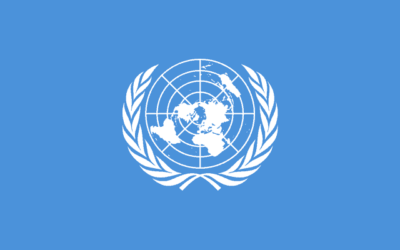According to the UN Guiding Principles on Business and Human Rights, “States must protect against human rights abuse within their territory and/or jurisdiction by third parties, including business enterprises. This requires taking appropriate steps to prevent, investigate, punish and redress such abuse through effective policies, legislation, regulations and adjudication.”
Under international law, States have the obligation to protect against human rights violations by non-State actors, including businesses. International treaty bodies such as the Human Rights Committee and the Committee on Economic, Social, and Cultural Rights have affirmed this State responsibility several times. Regional human rights courts have also emphasized State duty to protect. For instance, in Fadeyeva v. Russia, the European Court of Human Rights ruled that the State was responsible for regulating businesses, even if they are not controlled or operated by the government; failure to regulate can result in State responsibility for rights violations.
In meeting their duty to protect, States are urged to:
- Enforce laws that are aimed at, or have the effect of, requiring business enterprises to respect human rights, and periodically to assess the adequacy of such laws and address any gaps;
- Ensure that other laws and policies governing the creation and ongoing operation of business enterprises, such as corporate law, do not constrain but enable business respect for human rights
- Provide effective guidance to business enterprises on how to respect human rights throughout their operations;
- Encourage, and where appropriate require, business enterprises to communicate how they address their human rights impacts.
Various State offices and departments can contribute to the advancement of business and human rights. National human rights institutions, such as ombudsman offices, may develop National Action Plans, receive complaints, and/or evaluate rights issues related to businesses, depending on their mandate. Courts and judicial systems are important venues for victims to access remedy. Other State mechanisms, such as labour inspectorates, play an important role in identifying, preventing, and addressing human rights issues.
See our pages on National Action Plans and legal frameworks for more details. For more information on the UN Guiding Principles, including guidance and implementation, see the Business & Human Rights Resource Centre website.
Government, Business, and Human Rights in Eastern Europe and Central Asia
Governance and State action were primary topics during the First Regional Forum on Business and Human Rights in Eastern Europe and Central Asia.
Because of their shared history, many countries in Eastern Europe and Central Asia share similar regulatory frameworks. According to Nevena Dičić Kostić of the Belgrade Centre for Human Rights, lack of law is not actually an issue for many countries in the region, as numerous existing laws are relevant to business and human rights. However, actual implementation of those laws and application to businesses is low. Lack of regulatory oversight is particularly concerning. Labour inspectorates, a chief mechanism for enforcing labour rights, are often weak or nonexistent in the region. Georgia, for instance, has had devastating issues with its labour inspectorate for years, despite being one of the few countries in the region to have a National Action Plan on Business and Human Rights.
Additionally, victims often face difficulty accessing remedy through the judicial system due to legal, financial and practical barriers. Criminal justice systems are not drafted in human rights language, and lawyers and judges often lack training in business and human rights. Lawyer Ana Dangova Hug pointed out that in Eastern Europe and Central Asia, victims have the burden of proof in two directions – the need to familiarise judges on existing business and human rights standards, on top of the need to prove liability. See our pages on remedy for more details.










